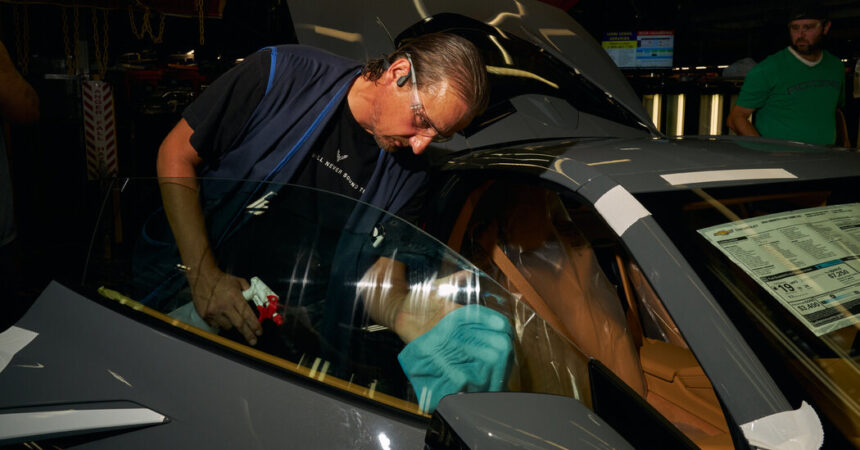U.S. Imposes 25% Tariffs on Auto Parts, Affecting Prices and Supply
The U.S. has imposed 25% tariffs on imported auto parts, which could significantly increase prices for new and used vehicles, repairs, and insurance. This latest move, ordered by President Trump in March, follows earlier levies on imported cars in early April. The tariffs will have a broader impact because even domestically produced cars often rely on components from other countries.
The administration stated that the tariffs aim to protect national security by incentivizing domestic automobile production and reducing reliance on foreign automobiles and their parts. However, the tariffs will not apply to components from Canada or Mexico as long as they meet North American trade agreement requirements. The administration also noted that imported auto parts will not be subject to other levies, like those on aluminum and steel, and companies that make cars in the U.S. will be exempted from paying a portion of the tariffs for two years.
The tariffs have already pushed up new car prices, with customers flocking to dealerships to buy vehicles before the levies took effect. The tariffs are also having a ripple effect on the used car market, as more people look for affordable alternatives, increasing demand and prices. The tariffs on new auto parts are expected to increase the cost of repairs and insurance premiums, as replacement parts will become more expensive.
While the president insists that the tariffs will bring manufacturing back to the U.S., many goods, including auto parts, can often be made more cheaply in other countries. Automakers and suppliers say it will take years to relocate assembly lines, and they are unlikely to commit billions of dollars to domestic manufacturing due to uncertainty about trade policy.
The exemption of many parts from Canada and Mexico will ease the burden on some companies. The auto industry accounts for about 5% of Mexico’s GDP and employs around one million people in the country. Vehicles and parts are by far Mexico’s largest exports to the U.S. However, many parts makers supply car factories in Canada, and vehicles made in those plants will still be hit with tariffs when exported to the U.S.
General Motors said it was eliminating a third shift at a pickup truck assembly line in Oshawa, Ontario, due to tariffs. The company will now build more trucks for Canadians. Tesla and Ford are somewhat less vulnerable, while other companies like Volvo and Rivian will also be hard hit.
The tariffs are expected to shrink the supply of less expensive vehicles, with nearly 80% of cars priced at less than $30,000 subject to 25% tariffs. Car prices will probably not skyrocket immediately, but carmakers and their dealers have large inventories of cars manufactured before the tariffs took effect. The uncertainty is creating huge headaches for carmakers, with some companies unable to make reliable predictions about sales and profit for 2025.
Reference : https://www.nytimes.com/2025/05/03/business/trump-auto-parts-tariffs.html






